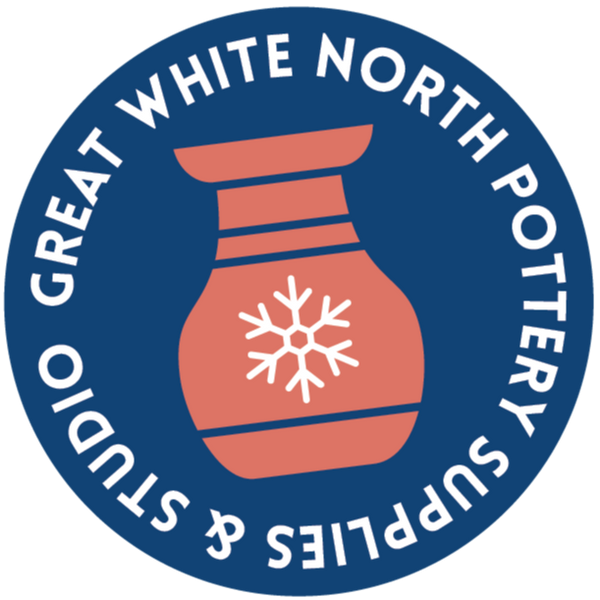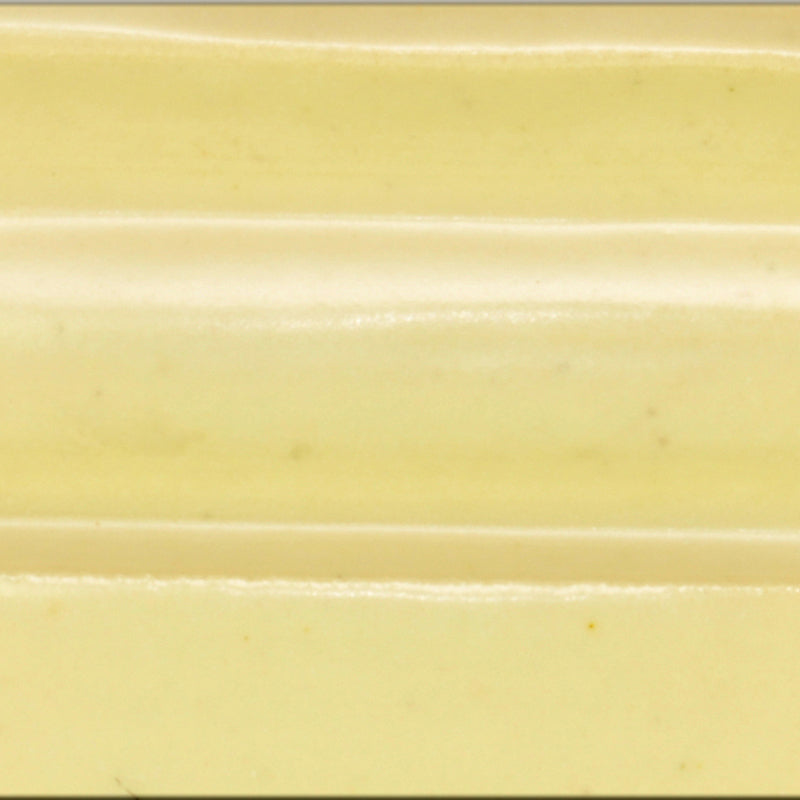Spectrum
1120 Satin Clear
1120 Satin Clear
SKU:1120
Pickup available at GWN HQ
Usually ready in 2 hours
Spectrum offers a selection of 79 cone 4/6 Stoneware Glazes. Most of these glazes are lead-free and dinnerware safe. Most of them also come with the A/P non-toxic rating from the Art & Creative Materials Institute (ACMI) which is clearly marked on the product label. Some of the reactive type glazes are rated C/L by the ACMI which means that they are considered toxic in the liquid (unfired) state due to the presence of heavy metals, such as copper or vanadium, beyond the non-toxic legal limit. C/L rated glazes are not suitable for use by young children or pregnant women.
Spectrum has 3 types of Stoneware Glazes: clear glazes; plain colored glazes; and reactive glazes. These are described in more detail below. In general, clear glazes are used to cover designs created with underglazes. There is a choice of gloss, satin or crackle finishes. Plain colored glazes are opaque and come in gloss and satin finishes. Some of our most popular stoneware glazes are the reactive colors which produce multi-tone and multi-colored effects by the combination of various metal oxides. Many other interesting effects can be created by layering these reactive glazes. In particular, layering a more fluid glaze, such as 1173, underneath or on top of one of the other reactive glazes often produces beautiful results.
Wet glazes are set up for brushing application.
CLEAR GLAZES
1100 - Clear Gloss Glaze (cone 4/6) An excellent lead free, A/P non-toxic, dinnerware safe stoneware clear gloss glaze which is compatible with most commercially available underglazes. Like most clear glazes 1100 - works best when applied thinly.
1120 - Clear Satin Glaze (cone 4/6) Also lead free, A/P non-toxic, dinnerware safe and suitable for use over underglaze decoration. Satin clear glazes are not as translucent as clear gloss glazes and will tend to mute the appearance of underglaze decoration somewhat. It should be kept thin (i.e. 1 or 2 coats by brushing) to improve clarity.
1187 - Clear Crackle Glaze (cone 4/6) A lead free, A/P non-toxic clear crackle glaze. After the piece has been removed from the kiln and allowed to cool the crackle pattern will form. A colored dye can be rubbed into the surface to emphasize the crackle pattern. Crackle glazes are not considered dinnerware safe due to the possibility of bacteria growth in the cracks.
PLAIN COLORED GLAZES
Opaque Gloss Glazes 1101, 1102, 1103, 1106, 1107, 1108, 1109, 1110, 1118, 1131, 1132, 1134, 1135, 1136, 1137, 1138, 1151, 1164, 1165, 1166, 1167, 1168, 1169, 1184, 1185, 1186, 1193, 1194, 1195, 1196. A beautiful selection of lead free, A/P non-toxic, dinnerware safe stoneware glazes with particular emphasis on bright primary colors. Opaque Satin Glazes 1121, 1122, 1123, 1124, 1125, 1126, 1127. Smooth satin finish on these stoneware glazes which are also lead free, A/P non-toxic and dinnerware safe. Metallic Glaze 1188 Pewter has a beautiful metallic finish. Please note that it is lead free, but not dinnerware safe or non-toxic because of the presence of a large amount of other metallic oxides.
REACTIVE GLAZES
Reactive Glazes 1113, 1115, 1117, 1129, 1140, 1141, 1142, 1143, 1144, 1145, 1155, 1156, 1170, 1171, 1174, 1175, 1176, 1177, 1178, 1179, 1180, 1181, 1182, 1183, 1191, 1192. Are all lead free, non-toxic and dinnerware safe. They are formulated to produce reactions during the firing cycle which give very interesting and beautiful effects. The final appearance of the glaze is dependent on firing temperature, glaze thickness and the composition of the clay body being used. The same glaze can look quite different on different clay bodies. The samples shown on the color charts are 3 brush coats of glaze fired to cone 5 in an electric kiln on a white clay body. Different results should be expected in reduction.
Reactive Glazes 1111, 1148, 1152, 1153, 1154, 1157, 1158, 1159, 1161, 1162, 1172, 1173. Are all lead free but they exceed the vanadium and/or copper threshold limit in the liquid unfired state and therefore are not non-toxic. However, they are all food safe if fired to the proper firing temperature. They behave in the manner described above for Reactive Glazes. Also be aware that some of the colors, such as 1148, 1152, 1153, 1154, 1158, 1159, 1161, 1162, and particularly 1173 are more fluid and may run. Be more careful when using them on vertical surfaces. Use fewer coats towards the bottom of the piece.


